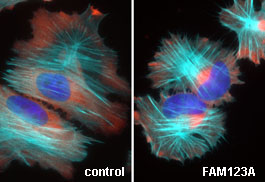James Evans, MD, PhD, an international expert in gene patenting and genetics policy, comments on the June 13, 2013 Supreme Court ruling regarding gene patenting.

“This is a predictable decision. It’s one in which both parties get something that they can claim as a victory. At this preliminary juncture, what I am pleased about is that there has been a ruling that simply isolating DNA is not sufficient for patent protection. And the reason I think that’s important is that this decision will enable the use of modern, emerging technologies for medical purposes. I think this decision puts to rest some concerns that many of us had about patent law getting in the way of medical progress and that this decision on the whole will enable progress and will not allow patents to stand in the way.
“What it will probably mean for patients is that we will have more freedom to analyze their DNA without as many concerns about patent infringements.”
Dr. Evans is the Bryson Distinguished Chair of Human Genetics at the University of North Carolina and director of the UNC Lineberger Clinical Cancer Genetics Program. He also serves as editor-in-chief of the journal Genetics in Medicine.
An expert in gene patenting and genetics policy, Evans has spoken and written nationally and internationally on the issue of direct to consumer genetic tests.
He led a program to educate federal judges about the intricacies of genetics and genetic policy as well as chairing a Federal task force that looked into the issue of gene patents. That task force, part of the Secretary’s Advisory Committee on Genetics, Health and Society, made formal recommendations to the Secretary of HHS regarding the role of gene patents in medical diagnostics.
Evans earned his medical and doctoral degrees from the University of Kansas. He completed his residency, serving as chief resident, in internal medicine at the UNC School of Medicine, and a fellowship in medical genetics at the University of Washington.
Date: June 13, 2013
